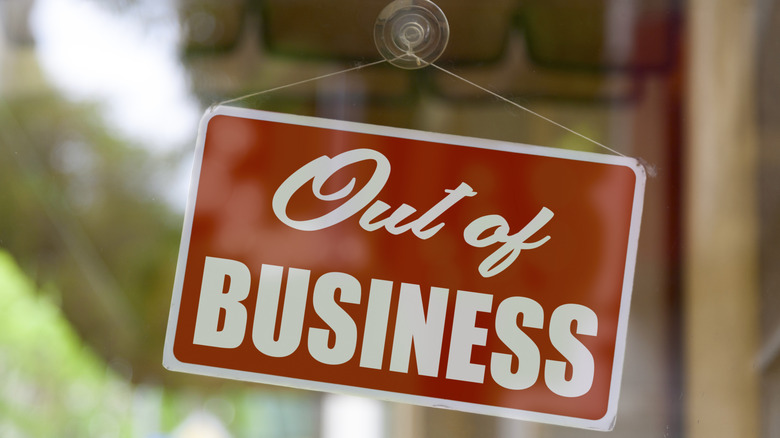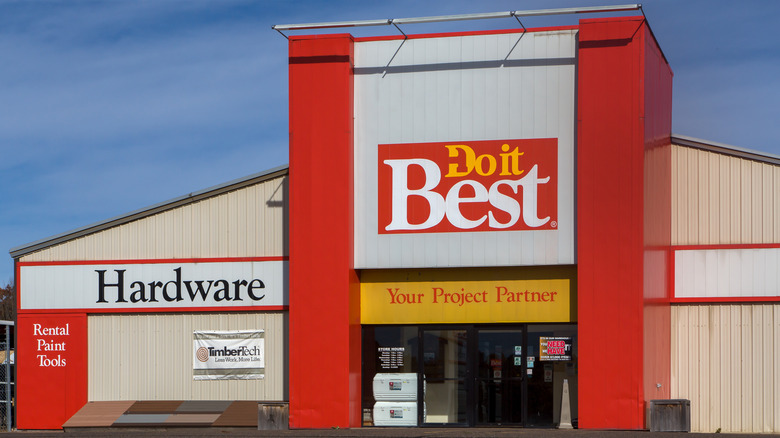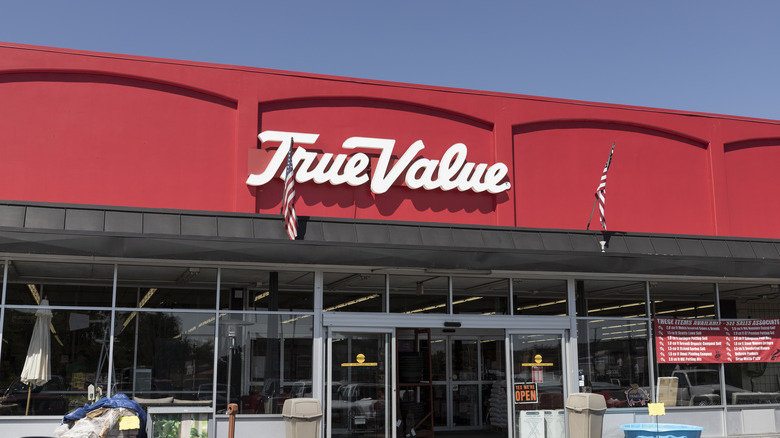The Popular Hardware Store That Went Bankrupt (And Why Stores Are Still Open)
In October 2024, True Value filed for bankruptcy, joining a long list of other retailers across industry segments that have seen their standing in the market plummet. It appears to be a difficult time for retail brands, with inflation continuing to pummel discretionary spending for consumers, and interest rates on new lending products (like home improvement loans and refinancing opportunities) tamping down interest in extracting cash value to work on home improvement tasks through other means.
True Value has operated for the better part of the last century. The brand has offered critical supplies for all kinds of building and home improvement tasks that consumers across the country have relied upon for generations. Although it's worth pointing out that the brand's primary focus remains as a wholesaler of equipment and materials rather than a market-facing big box store akin to Home Depot, it does engage in direct consumer sales, too. In its bankruptcy filing, True Value has cited changes in the housing market and other evolutions in consumer behavior more broadly as significant contributing factors to its cash-strapped reality. Even as the brand faces an endpoint, True Value stores will remain open, potentially adding a quirky question mark to the saga. Indeed, True Value branded stores are slated to remain open because they are not subject to the terms of the bankruptcy filing. But the reason for this exclusion may be a little surprising. Here's what's going on with True Value and its brick and mortar locations.
Do It Best Corp plans to buy the brand
The True Value bankruptcy filing shows liabilities ranging between $500 million and $1 billion. A change in the end user marketplace has led to a slowdown in demand, both in engaging with retail consumers and professionals who rely on the outlet for materials. Bankruptcy offers a means of restructuring as a brand (as it does for individuals who choose to file for bankruptcy and work through debt troubles) and True Value sought that outlet for its current predicament.
Entering the bankruptcy proceedings, the company was already working with a competitor in Do It Best Corp. The rival home improvement company was also founded in the 1940s, and both have operated as dealer-owned cooperatives rather than the typical hardware retail chain that most consumers might be most familiar with. The shared experience across the two brands offers a particularly strong opportunity to integrate True Value's 4,500 locations into another likeminded member-owned hierarchy to continue providing support to local retailers and the customers they serve (with retail sales valued at roughly $10 billion globally). Do It Best entered the filing as a stalking horse bidder (meaning other offers would still be considered) and agreed to purchase the True Value brand and take on roughly $45 million in existing obligations for a cash price of $153 million. A month after the filing, the sale to Do It Best was finalized, and in a press release Do It Best's CEO Dan Starr noted that "this has been a challenging process" but voiced his excitement about becoming "the world's largest cooperative in our space."
True Value stores are independently owned, so they remain open and generally unaffected
Even though the bankruptcy filing only required roughly a month to resolve, the brick and mortar locations within the True Value network were never going to be subject to closure or just about any kind of restructuring pressure. This is because as a cooperative, True Value stores are not owned by the company. In reality, the only change that may be in the cards for the future is a rebranding on the buildings, but the stores themselves will remain open long into the future. Moreover, Do It Best has signaled that True Value will operate as a separate subsidiary entity rather than being assimilated directly into the parent company's structure.
This treatment suggests that True Value locations are unlikely to see even a name change with operations continuing as usual and without interruption. During the initial bankruptcy filing, True Value sought to continue paying salaries and benefits to employees. With the acquisition finalized and a new leadership team placed within the organization, True Value is likely to grow in strength. With the backing of additional cooperative locations built into the network's reach, True Value store owners may be in an even stronger position today after the changeover.


